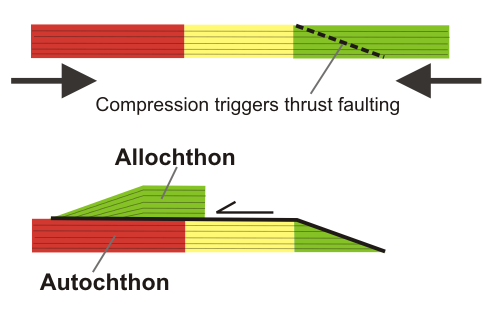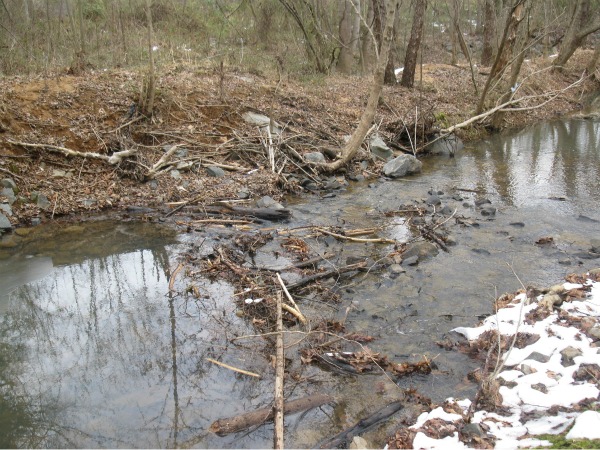The name of our blog is difficult to pronounce and even more difficult to spell, and Chris’s reasoning for assigning the name didn’t go much beyond, ‘it sounds cool, and has lots of syllables*’. But it turns out serendipity has trumped whimsy in this case, because it turns out that despite our very different research interests, they are linked by one word: allochthonous.
A literal translation of allochthonous from its Greek roots gives you ‘different earth’; or ‘stuff that’s not from around these parts…’ In tectonics, it is generally used to describe a sequence that has been moved a long distance from its original location by faulting (most usually, thrust faulting). For example, a sequence of sediments which were originally deposited in the deep sea, and have then been thrust over shallow marine or continental deposits of a similar age. Chris explains in more detail here:

The formation of an allochthonous sequence by motion along a large thrust fault. The 'autochon' is the stuff that stays put, relatively. Colour coding represents continental (red) shallow marine (yellow) and deep marine (green) rocks.
In ecology, allochthonous material is something imported into an ecosystem from outside of it, and in streams in particular, allochthonous material includes leaves that fall or are washed into the water and branches and trees that topple into the stream. Allochthonous material can also include dissolved organic matter (DOM) carried into the stream by overland or subsurface flow. Anne explains how this concept is central to thinking about nutrient cycling in rivers here.

Allochthonous organic material in Clark Creek, Charlotte. High water has washed branches and leaves into the creek, where they got hung up on the riffle (or riprap).
Allochthonous is also used in the social sciences (and more generally in the Netherlands) to refer to immigrant populations. Which, given how many continents that Chris has lived on during his scientific career thus far, possibly makes it possibly an even more apt term for the place where he writes about it.
*Although for Chris, the two are almost synonymous.



Nice plan for content warnings on Mastodon and the Fediverse. Now you need a Mastodon/Fediverse button on this blog.